Harry Potter and the Half-Blood Prince
J.K. Rowling
This must-read fantasy takes you inside Hogwarts again for Harry's 6th year. What's in store for the wizard and his friends? What danger does his greatest enemy have planned? And who is the half-blood prince? Find out in this long-awaited adventure!\nWinn
0439785960
The Making of a Chef: Mastering Heat at the Culinary Institute of America
Michael Ruhlman
Journalist Michael Ruhlman talked his way into the CIA: the Culinary Institute of America, the Harvard of cooking schools. It had something to do with potatoes a grand-uncle had eaten deacades earlier, how the man could remember them so well for so long, buried as they had been in the middle of an elegant meal. Ruhlman wanted to learn how to cook potatoes like that—like an art—and the CIA seemed the place to go. The fun part of this book is that we all get to go along for the ride without having to endure the trauma of cooking school.
Ever wonder what goes on in a busy kitchen, why your meal comes late or shows up poorly cooked? The temptation is to blame the waiter, but there are a world of cooks behind those swinging doors, and Ruhlman marches you right into it. It's a world where, when everything is going right, time halts and consciousness expands. And when a few things go wrong, the earth begins to wobble on its axis. Ruhlamn has the writerly skills to make the education of a chef a visceral experience.
0805046747
The Way of Stretching: Flexibility for Body and Mind
Anne Kent Rush
Working from the assumption that balancing mind, body and spirit is the key to physical and mental ease and reduction of stress, Rush combines three approaches for complete flexibility: exercises for toning the body, breathing techniques for energy and meditation and visualisation techniques for mental development. Using ideas from many different traditions such as T'ai Chi, Chinese medicine, Aikido, Zen, Yoga and massage plus 30 years experience of teaching and writing about preventive health care, Rush distills the vital elements of each into clear, expert advice. Rush addresses the common concerns of those such as athletes with dodgy knees, workers who spend too long at the keyboard and the stiffness often experienced by the elderly. She covers injury prevention, maintaining tone and injury healing as well as the development of flexible energy. This is a unique, innovative and pleasurable solution to everyday aches, decreased athletic abilities, loss of flexibility associated with ageing and mental stress.
0316172316
Fury: A Novel
Salman Rushdie
Fury is a gloss on fin-de-siècle angst from the master of the quintuple entendre. Salman Rushdie hauls his hero, Malik Solanka, from Bombay to London to New York, and finally to a fictional Third World country, all in order to show off a preternatural ability to riff on anything from Bollywood musicals to revolutionary politics. Professor Solanka is propelled on this path by his strange love of dolls. He plays with them as a child; as an adult he quits his post at Cambridge in order to produce a TV show wherein an animated doll, Little Brain, meets the great thinkers of history. Little Brain becomes a smash hit, and perhaps inevitably, Solanka finds himself in America. (It's not only the show-biz version of manifest destiny that brings him to the New World: one night in London he finds himself standing over the sleeping figures of his beloved wife and child, frighteningly close to stabbing them. This intellectual puppeteer is, of course, fleeing himself.)
Now, in New York, he is filled with wrath. Solanka is far from being an Everyman, but his fury is a kind of Everyfury. It's road rage writ large—the natural reaction to an excess of mental traffic. There are several books running simultaneously here: a mystery, a family romance, a bitingly satirical portrait of millennial Manhattan, and a sci-fi revolutionary fantasy. A single fragment gives a sense of Rushdie's reflexive multiplicity: when Solanka finally faces his memories of childhood, he recalls "his damn Yoknapatawpha, his accursed Malgudi." Here's a writer who, leading us into the tender places of his protagonist's soul, stops long enough to reference not just Faulkner but Narayan as well. If it sounds like a bit of a mess, it is. If it sounds frighteningly intelligent, it's that too. —Claire Dederer
0679783504
Midnight's Children
Salman Rushdie
Anyone who has spent time in the developing world will know that one of Bombay's claims to fame is the enormous film industry that churns out hundreds of musical fantasies each year. The other, of course, is native son Salman Rushdie—less prolific, perhaps than Bollywood, but in his own way just as fantastical. Though Rushdie's novels lack the requisite six musical numbers that punctuate every Bombay talkie, they often share basic plot points with their cinematic counterparts. Take, for example, his 1980 Booker Prize-winning Midnight's Children: two children born at the stroke of midnight on August 15, 1947—the moment at which India became an independent nation—are switched in the hospital. The infant scion of a wealthy Muslim family is sent to be raised in a Hindu tenement, while the legitimate heir to such squalor ends up establishing squatters' rights to his unlucky hospital mate's luxurious bassinet. Switched babies are standard fare for a Hindi film, and one can't help but feel that Rushdie's world-view—and certainly his sense of the fantastical—has been shaped by the films of his childhood. But whereas the movies, while entertaining, are markedly mediocre, Midnight's Children is a masterpiece, brilliant written, wildly unpredictable, hilarious and heartbreaking in equal measure.
Rushdie's narrator, Saleem Sinai, is the Hindu child raised by wealthy Muslims. Near the beginning of the novel, he informs us that he is falling apart—literally: I mean quite simply that I have begun to crack all over like an old jug—that my poor body, singular, unlovely, buffeted by too much history, subjected to drainage above and drainage below, mutilated by doors, brained by spittoons, has started coming apart at the seams. In short, I am literally disintegrating, slowly for the moment, although there are signs of an acceleration. In light of this unfortunate physical degeneration, Saleem has decided to write his life story, and, incidentally, that of India's, before he crumbles into "(approximately) six hundred and thirty million particles of anonymous, and necessarily oblivious, dust." It seems that within one hour of midnight on India's independence day, 1,001 children were born. All of those children were endowed with special powers: some can travel through time, for example; one can change gender. Saleem's gift is telepathy, and it is via this power that he discovers the truth of his birth: that he is, in fact, the product of the illicit coupling of an Indian mother and an English father, and has usurped another's place. His gift also reveals the identities of all the other children and the fact that it is in his power to gather them for a "midnight parliament" to save the nation. To do so, however, would lay him open to that other child, christened Shiva, who has grown up to be a brutish killer. Saleem's dilemma plays out against the backdrop of the first years of independence: the partition of India and Pakistan, the ascendancy of "The Widow" Indira Gandhi, war, and, eventually, the imposition of martial law.
We've seen this mix of magical thinking and political reality before in the works of Günter Grass and Gabriel García Márquez. What sets Rushdie apart is his mad prose pyrotechnics, the exuberant acrobatics of rhyme and alliteration, pun, wordplay, proper and "Babu" English chasing each other across the page in a dizzying, exhilarating cataract of words. Rushdie can be laugh-out-loud funny, but make no mistake—this is an angry book, and its author's outrage lends his language wings. Midnight's Children is Salman Rushdie's irate, affectionate love song to his native land—not so different from a Bombay talkie, after all. —Alix Wilber
0140132708
|
The Satanic Verses
Salman Rushdie
No book in modern times has matched the uproar sparked by Salman Rushdie's The Satanic Verses, which earned its author a death sentence. Furor aside, it is a marvelously erudite study of good and evil, a feast of language served up by a writer at the height of his powers, and a rollicking comic fable. The book begins with two Indians, Gibreel Farishta ("for fifteen years the biggest star in the history of the Indian movies") and Saladin Chamcha, a Bombay expatriate returning from his first visit to his homeland in 15 years, plummeting from the sky after the explosion of their jetliner, and proceeds through a series of metamorphoses, dreams and revelations. Rushdie's powers of invention are astonishing in this Whitbread Prize winner.
0963270702
Forever Lily: An Unexpected Mother's Journey to Adoption in China
Beth Nonte Russell
"Will you take her?" she asks.
When Beth Nonte Russell travels to China to help her friend Alex adopt a baby girl from an orphanage there, she thinks it will be an adventure, a chance to see the world. But her friend, who had prepared for the adoption for many months, panics soon after being presented with the frail baby, and the situation develops into one of the greatest challenges of Russell's life.
Russell, watching in disbelief as Alex distances herself from the child, cares for the baby — clothing, bathing, and feeding her — and makes her feel secure in the unfamiliar surroundings. Russell is overwhelmed and disoriented by the unfolding drama and all that she sees in China, and yet amid the emotional turmoil finds herself deeply bonding with the child. She begins to have dreams of an ancient past — dreams of a young woman who is plucked from the countryside and chosen to be empress, and of the child who is ultimately taken from her. As it becomes clear that her friend — whose indecisiveness about the adoption has become a torment — won't be bringing the baby home, Russell is amazed to realize that she cannot leave the baby behind and that her dreams have been telling her something significant, giving her the courage to open her heart and bring the child home against all odds.
Steeped in Chinese culture, Forever Lily is an extraordinary account of a life-changing, wholly unexpected love.
0743292979
Becoming Naomi Leon
Pam Munoz Ryan
Naomi Soledad Leon Outlaw has had a lot to contend with in her young life, her name for one. Then there are her clothes (sewn in polyester by Gram), her difficulty speaking up, and her status at school as "nobody special." But according to Gram, most problems can be overcome with positive thinking. And with Gram and her little brother, Owen, life at Avocado Acres Trailer Rancho in California is happy and peaceful...until their mother reappears after seven years of being gone, stirring up all sorts of questions and challenging Naomi to discover and proclaim who she really is.
0439269970
The Prize Winner of Defiance, Ohio: How My Mother Raised 10 Kids on 25 Words or Less
Terry Ryan
The Prize Winner of Defiance, Ohio introduces Evelyn Ryan, an enterprising woman who kept poverty at bay with wit, poetry, and perfect prose during the "contest era" of the 1950s and 1960s.
Stepping back into a time when fledgling advertising agencies were active partners with consumers, and everyday people saw possibility in every coupon, Terry Ryan tells how her mother kept the family afloat by writing jingles and contest entries. Mom's winning ways defied the Church, her alcoholic husband, and antiquated views of housewives. To her, flouting convention was a small price to pay when it came to securing a happy home for her six sons and four daughters. Evelyn, who would surely be a Madison Avenue executive if she were working today, composed her jingles not in the boardroom, but at the ironing board.
By entering contests wherever she found them — TV, radio, newspapers, direct-mail ads — Evelyn Ryan was able to win every appliance her family ever owned, not to mention cars, television sets, bicycles, watches, a jukebox, and even trips to New York, Dallas, and Switzerland. But it wasn't just the winning that was miraculous; it was the timing. If a toaster died, one was sure to arrive in the mail from a forgotten contest. Days after the bank called in the second mortgage on the house, a call came from the Dr Pepper company: Evelyn was the grand-prize winner in its national contest — and had won enough to pay the bank.
Graced with a rare appreciation for life's inherent hilarity, Evelyn turned every financial challenge into an opportunity for fun and profit. From her frenetic supermarket shopping spree — worth $3,000 today — to her clever entries worthy of Erma Bombeck, Dorothy Parker, and Ogden Nash, the story of this irrepressible woman whose talents reached far beyond her formidable verbal skills is told in The Prize Winner of Defiance, Ohio with an infectious joy that shows how a winning spirit will triumph over the poverty of circumstance.
B000Q6GY2Q
I Had Seen Castles
Cynthia Rylant
Fifty years after World War II, during which he enlisted at the age of seventeen, John Dante is haunted by memories of the war, of his family, and of Ginny Burton, who opposed all war and John's enlistment. Reprint. K. PW.
0152003746
Failing At Fairness: How Our Schools Cheat Girls
Myra Sadker, David Sadker
Failing at Fairness, the result of two decades of research, shows how gender bias makes it impossible for girls to receive an education equal to that given to boys.
Girls' learning problems are not identified as often as boys' are
Boys receive more of their teachers' attention
Girls start school testing higher in every academic subject, yet graduate from high school scoring 50 points lower than boys on the SAT
Hard-hitting and eye-opening, Failing at Fairness should be read by every parent, especially those with daughters.
068480073X
|
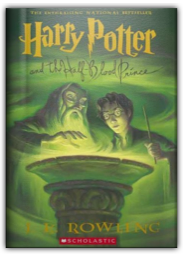
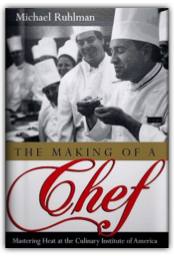
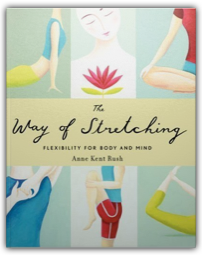
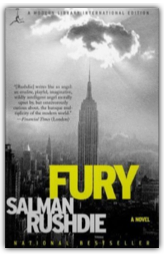
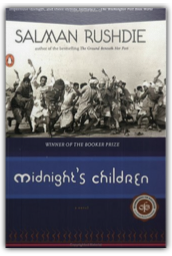
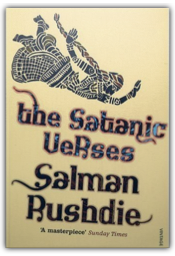
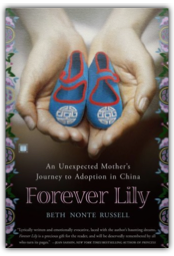
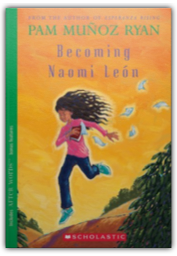
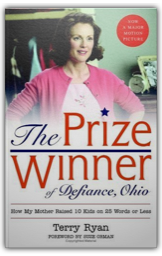
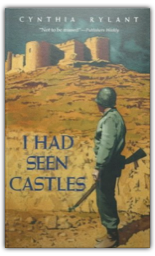
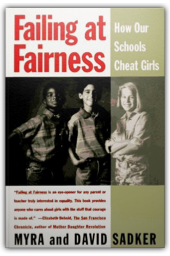


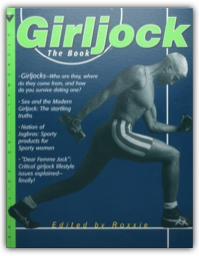

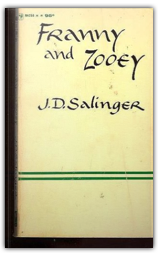
 Made with Delicious Library
Made with Delicious Library